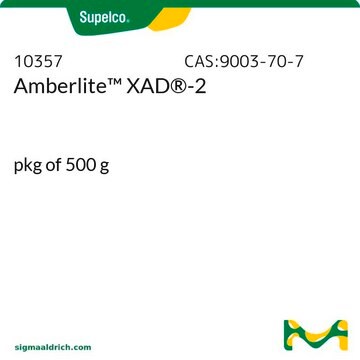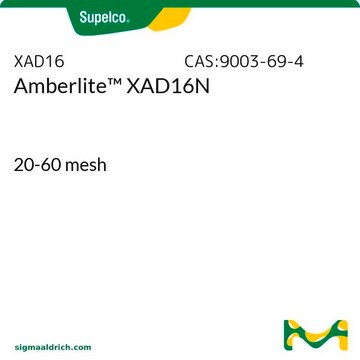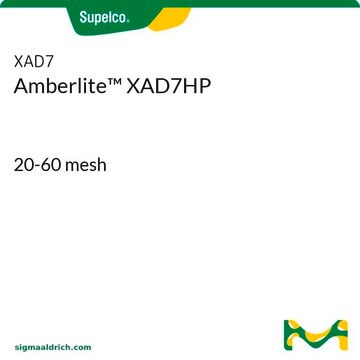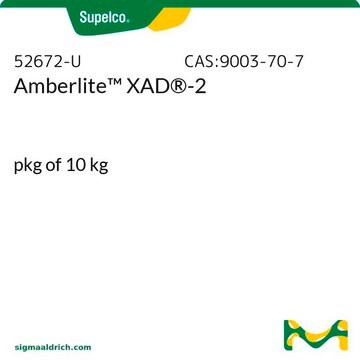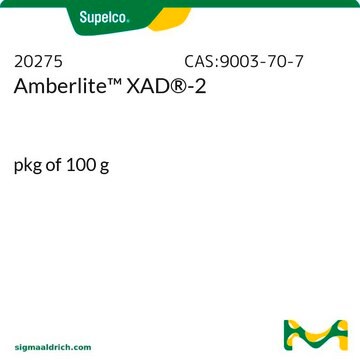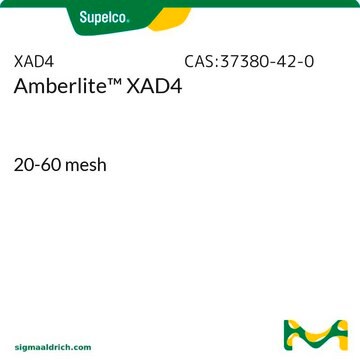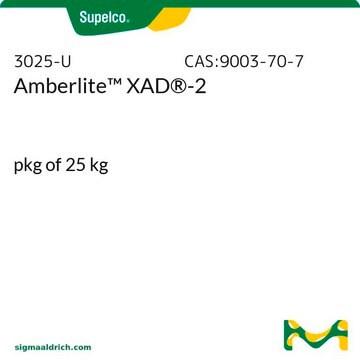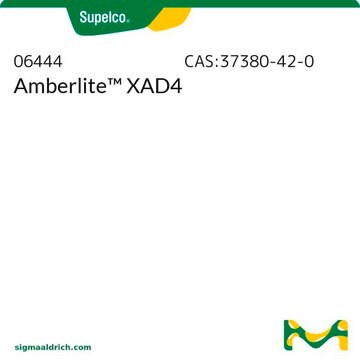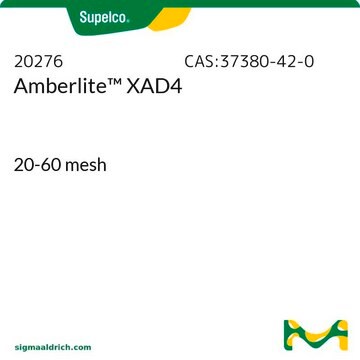SU853005
Amberlite™ XAD®-2 polymeric adsorbent
20-60 mesh, pkg of 5 kg
About This Item
Recommended Products
Product Name
Amberlite™ XAD®-2, pkg of 5 kg
form
solid
Quality Level
packaging
pkg of 5 kg
availability
not available in (Currently experiencing backorder delays due to raw material supply disruption)
technique(s)
LPLC: suitable
solid phase extraction (SPE): suitable
surface area
~300 m2/g
matrix
styrene-divinylbenzene (macroreticular)
matrix active group
polymer
particle size
20-60 mesh
pore size
~0.65 mL/g pore volume
90 Å mean pore size
density
1.02 g/mL at 25 °C (true wet)(lit.)
1.08 g/mL at 25 °C (skeletal)(lit.)
separation technique
reversed phase
SMILES string
N([C@@H](CCC(=O)OC(C)(C)C)C=O)C(=O)OCC1c2c(cccc2)c3c1cccc3
InChI
1S/C24H27NO5/c1-24(2,3)30-22(27)13-12-16(14-26)25-23(28)29-15-21-19-10-6-4-8-17(19)18-9-5-7-11-20(18)21/h4-11,14,16,21H,12-13,15H2,1-3H3,(H,25,28)/t16-/m0/s1
InChI key
BCIPGSZQUDLGSY-INIZCTEOSA-N
Looking for similar products? Visit Product Comparison Guide
Related Categories
General description
Specifications:
Application
Legal Information
Storage Class
11 - Combustible Solids
wgk_germany
WGK 3
flash_point_f
Not applicable
flash_point_c
Not applicable
ppe
Eyeshields, Gloves, type N95 (US)
Choose from one of the most recent versions:
Already Own This Product?
Find documentation for the products that you have recently purchased in the Document Library.
Customers Also Viewed
Related Content
FAS, or 'forever chemicals,' persist in the environment and pose risks to human health. Discover our environmental monitoring tools for PFAS quantification, aiding researchers, regulators, and labs in testing for PFAS.
Our team of scientists has experience in all areas of research including Life Science, Material Science, Chemical Synthesis, Chromatography, Analytical and many others.
Contact Technical Service